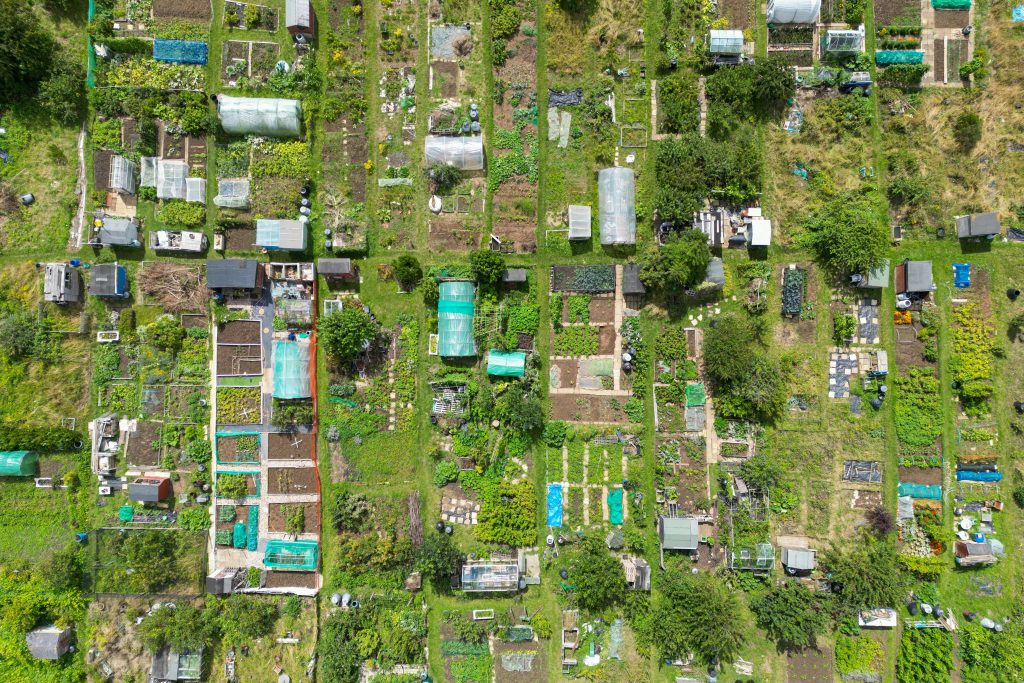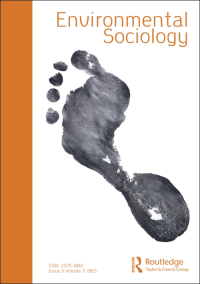
Limits and openings for peri-urban gardening
in the context of post-socialist extended urbanization
by András Vigvari
This paper contributes to new debates on urban agriculture as a sustainability tool, addressing allotment gardens and post-socialist allotment gardens in particular, as a form of urban gardening flagged as especially promising by recent research. Combining perspectives from research on post-socialist allotments and from global development debates over peri-urban gardening, we analyze the social conditions of allotment gardening in a case study from Hungary. In our ethnographic case study, we investigated changes in allotment gardening induced by structural changes after 1990, in an allotment situated at the south-eastern edge of the functional urban area of Budapest
The rise and fall of allotment gardens in Hungary
We show that the expansion of allotment gardening happened as part of socialist second economy, a hidden austerity policy that served to compensate for shrinking living standards through informal self-help. We argue that this model was part of a global policy shift towards supporting informal self-help activities in the context of global neoliberalization. Yet, it contained forms of institutional support that made large-scale allotment gardening possible, a condition that vanished after the fall of socialism. Our case study shows that current forms of allotment gardening are severely limited through consequent structural constraints, like the dominance of informal housing function in allotments, rising input costs, and scarce labor time. We conclude that larger-scale institutional support is essential to ease those limitations and point at possible consequences for comparative research and policy intervention regarding allotments’ sustainability role.
Findings & future challenges
Our case study shows that while allotment gardening is still maintained as a practice in Hungary, structural dynamics described by literature on peri-urban food self-provision in the context of global suburbanization impose limitations on it. Historically, the wide-spread institutionalization of allotment gardens was part of socialist development policies which allowed blue-collar workers to do leisure and subsistence activities in peri-urban gardens. Allotment food production was integrated in the socialist second economy, to get her with other informal income-generating activities practiced in allotment gardens. Socialist frameworks like stable urban jobs, formal rights to plots, controlled input prices and state-provided retail channels provided vital infrastructures that stabilized and supported these activities.
After 1989, these infrastructures disappeared, and –under the pressure of wage instability and growing housing prices – the function of allotments shifted towards informal dwelling. Our interviews show that dwellers chose allotments primarily to reduce housing costs while relying on incomes from city jobs. Unlike in the socialist second economy, these forms of self-help happen without any institutional support, and within them, the significance of gardening is minimalized. Regarding present conditions of gardening, our ethnographic case shows that current possibilities of gardening are increasingly reduced, with each of our interviewees reporting that producing food by gardening is more costly than buying on the market. The most important factors of this shift are declining real wages, raising input prices, the dismantling of state-provided retail channels, and the transformation of the area through informal constructions, which shrinks garden sizes, and reduces soil quality as well as water amounts in wells. Climate effects and continuing (unregulated) constructions are adding to this effect. Under these conditions, gardening presently constitutes a small, relatively costly part of the household portfolio, conditioned by scarce free time, scarce incomes, and declining soil and water conditions.
 Gagyi, Ágnes ; Vigvári, András: Limits and openings for peri-urban gardening in the context of post-socialist extended urbanization: a case from Budapest. Environmental Sociology pp. 1-11. , 11 p. (2025)
Gagyi, Ágnes ; Vigvári, András: Limits and openings for peri-urban gardening in the context of post-socialist extended urbanization: a case from Budapest. Environmental Sociology pp. 1-11. , 11 p. (2025)


